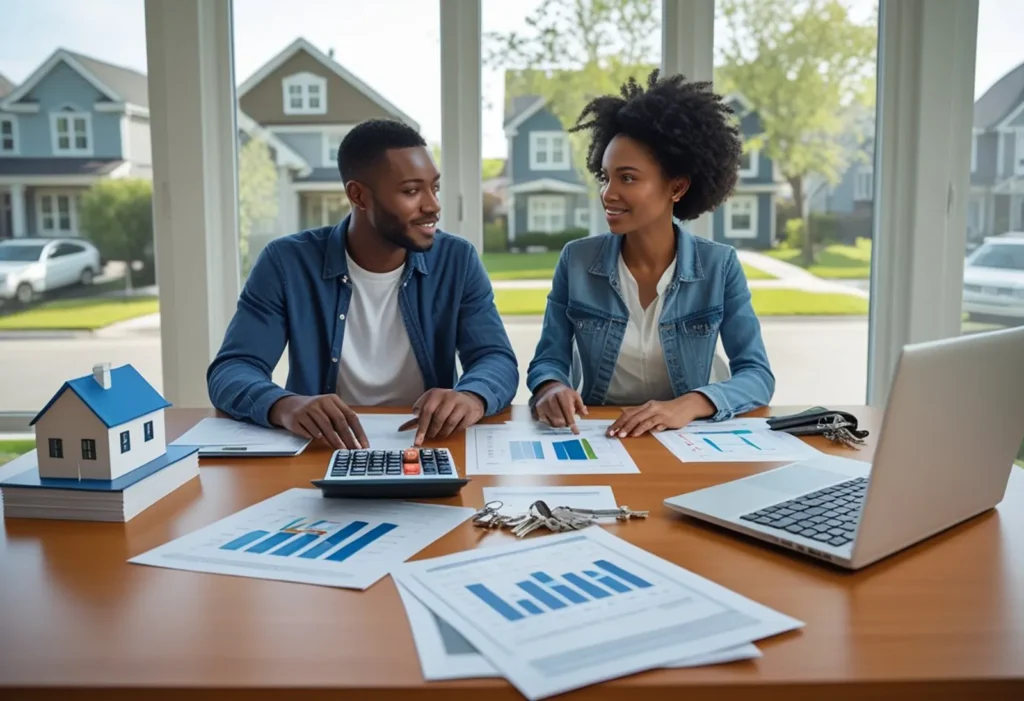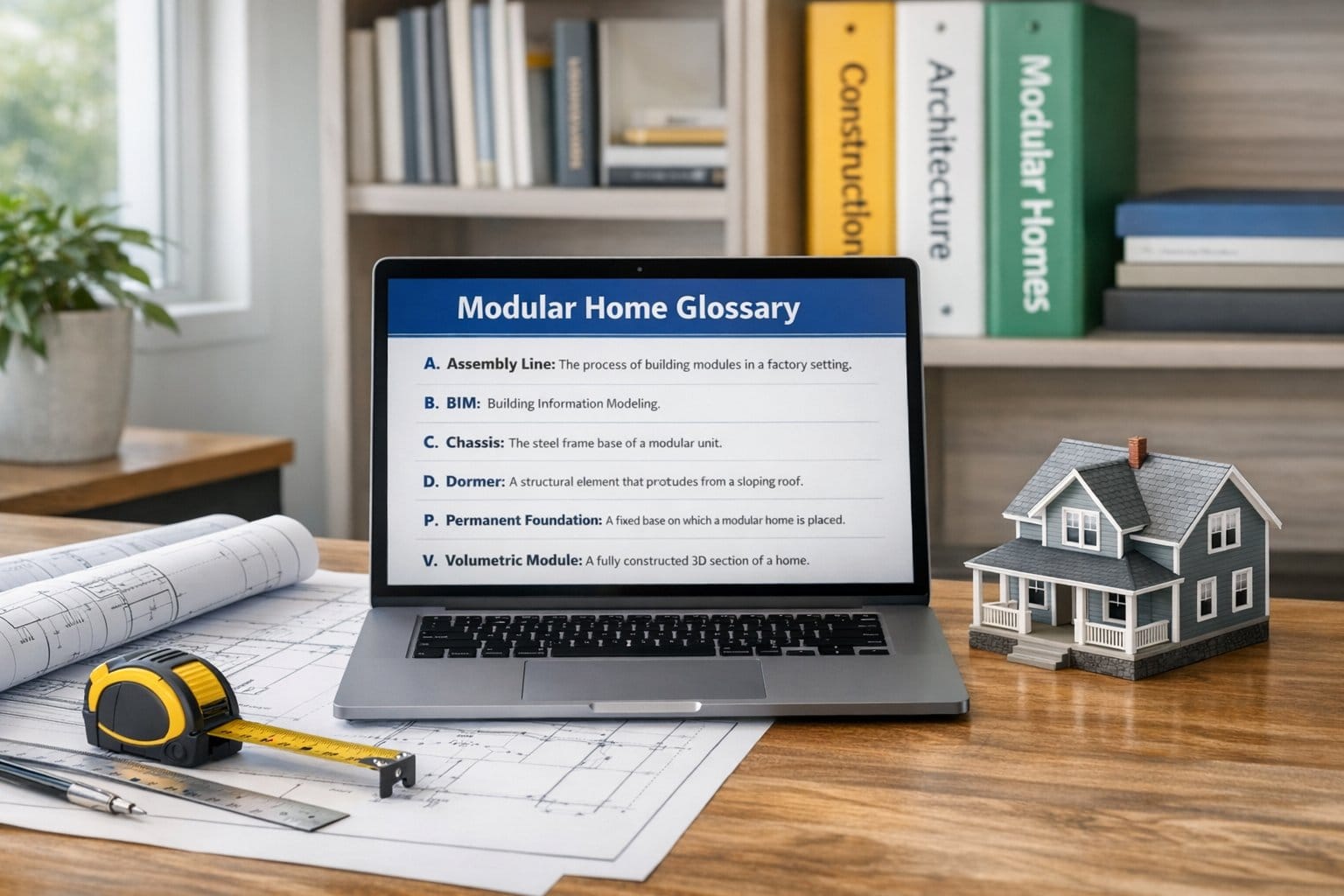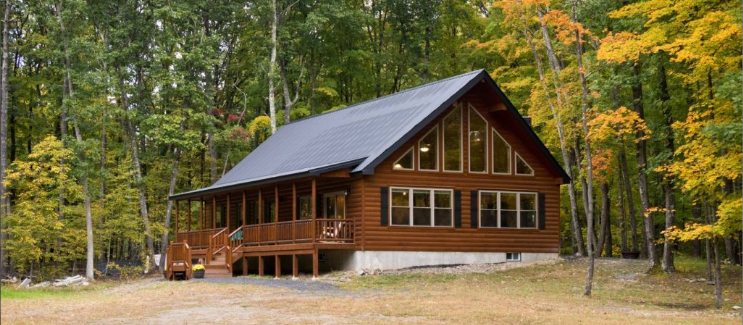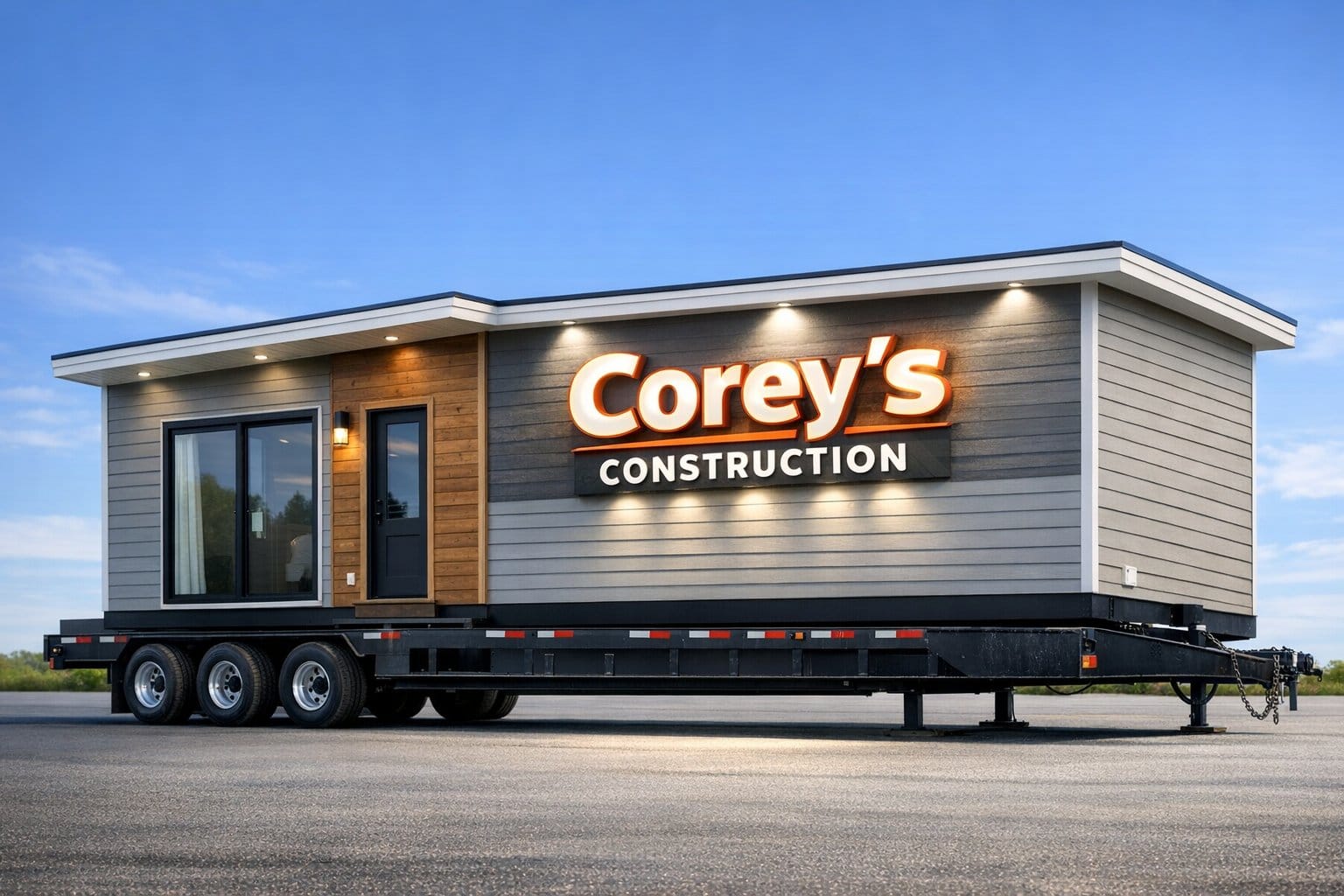Choosing whether to rent or buy a home is a big decision that affects both your finances and lifestyle. Buying a home is usually the smarter investment for your future if you plan to stay in one place for several years and want to build equity over time. On the other hand, renting lets you stay flexible and avoid some of the upfront costs and responsibilities that come with owning a house.

The right choice depends on your situation. Your income, long-term goals, and how quickly you need to move can all play a part. Knowing the pros and cons of each option helps you decide what fits your plans best.
Key Takeaways
- Renting gives you flexibility and fewer upfront costs
- Buying helps you build long-term financial value
- Your personal goals and finances determine the best choice
Understanding the Basics of Renting and Buying
Deciding between renting and buying a home has a direct impact on your money and future plans. Each option comes with its own facts, costs, and benefits that can shape your financial decision.
Defining Renting and Its Core Features
When you rent, you sign a lease for a specific amount of time—usually one year. You pay monthly rent to live in the space. The landlord is usually responsible for repairs, major maintenance, and some utilities.
Renting often has a lower upfront cost. You may only need to pay a security deposit plus the first month’s rent. You don’t build any equity, since you don’t actually own the property.
Key features of renting:
- Flexibility: Easier to move when your lease ends.
- Lower initial costs: No down payment or large closing fees.
- Limited control: You can’t remodel or make big changes to the home.
- Little responsibility: No major repair or tax bills.
Monthly rent can sometimes cost less than a mortgage. This is common in many markets and makes renting attractive for people who need lower monthly expenses or more flexibility. Learn more about renting’s main points at Investopedia’s renting overview.
Exploring the Process of Buying a Home
Buying a home means you take on full ownership and more responsibility. To start, you will need a down payment, which is often between 3% and 20% of the home’s price. There are also closing costs and ongoing expenses like property taxes and insurance.
You build equity over time as you pay off the mortgage. Homeownership can give you more control—such as the ability to remodel, rent rooms out, or even sell for a profit.
Key features of buying:
- Equity: As you pay your mortgage, you own more of the home.
- Stability: Fixed payments if you have a fixed-rate loan.
- Responsibility: You handle repairs, taxes, and maintenance.
- Upfront investment: Higher starting costs compared to renting.
Buying is a long-term financial decision and often best suited for people planning to stay in one place for several years. Access detailed information about buying a home and its process.
Financial Considerations and Upfront Costs
Buying and renting both come with significant costs at the start. These expenses impact your budget right away and may shape what you can afford.
Down Payments and Security Deposits
When you buy a home, you usually pay a down payment. This is often between 3% and 20% of the home’s price, depending on your loan and credit. For example, a $300,000 home may require $9,000 to $60,000 upfront.
If you rent, you usually owe a security deposit. This is usually equal to one month’s rent, though some landlords may ask for more. For a $2,000-a-month apartment, this could be $2,000.
Renters also pay the first month’s rent up front. Buyers need a larger cash reserve right away, while renters can usually move in with much less money. You can compare what you’ll pay in your area using tools like this financial calculator to weigh your options.
Closing Costs and Other Initial Expenses
Closing costs are expenses you pay when buying a home, not just the down payment. These include loan origination fees, appraisal fees, title insurance, taxes, and more. These costs often add up to 2%–5% of the home’s purchase price. For that same $300,000 house, closing costs may range from $6,000 to $15,000 or more.
Other upfront costs for buyers include inspections and moving fees. Renters also sometimes pay for background checks or application fees, but these are much lower.
Buying comes with more and higher initial expenses than renting, and these costs happen before you even own the home. Knowing what to expect in each situation makes it easier to prepare and plan your finances. For more details on upfront costs and how they compare, see this guide on rent vs buy home costs.
Monthly Payments and Ongoing Housing Costs
Owning or renting comes with different costs that can impact your budget each month. Understanding the key expenses helps you make the best choice for your financial situation.
Rent vs. Mortgage Payments
When you rent, your biggest monthly expense is usually your rent payment. This amount is set by your landlord and is often the same each month during your lease. However, your landlord may raise the rent when you renew your lease, sometimes by a little and sometimes by a lot.
Paying a mortgage works differently. If you have a fixed-rate mortgage, your monthly payment stays steady over the life of the loan. Your mortgage payment typically includes loan principal, interest, and sometimes private mortgage insurance. Unlike rent, a portion of your payment goes toward building equity in your home. Keep in mind your mortgage payment does not cover all home costs—there are other fees you are responsible for as an owner. You can use a calculator to compare the overall cost of renting versus buying.
Utilities, Maintenance, and Property Taxes
Renters often have some utilities included in their monthly rent, such as water or trash. You might still pay for electricity, internet, or gas. Repairs and maintenance, like fixing appliances or leaks, are usually the responsibility of the landlord, so you do not have to budget for these costs.
As a homeowner, you pay for almost all utilities, including water, electricity, gas, and sometimes sewer services. You are also responsible for all maintenance, such as lawn care, plumbing, and general repairs. These maintenance costs can happen suddenly and add up over time. Homeowners must also pay property taxes, which can be a significant expense each year and are often included in your mortgage payment. For more details on the costs of owning versus renting, see what Investopedia says about ongoing housing expenses.
Long-Term Financial Impact

When deciding whether to rent or buy, your choice can shape your long-term financial situation. Consider how building equity, property appreciation, and opportunity costs play a role in wealth and cash flow.
Equity Building and Property Appreciation
Buying a home lets you build equity with every mortgage payment you make. Equity is the share of the property you truly own, not the part you owe to the lender. Over time, as you pay off your mortgage, your stake in the property grows.
Property appreciation is also important. Home values often rise, though not always at the same rate. If your house goes up in value, so does your equity. This potential growth can become part of your net worth and give you more options in the future.
On the other hand, renting doesn’t allow you to build equity. Your monthly rent payments go to your landlord with no return on investment. If home prices in your area rise, you won’t benefit from that growth unless you own property.
Opportunity Costs of Renting and Buying
Opportunity cost means what you lose out on by choosing one option over another. When you buy a house, you tie up money in a down payment and mortgage costs. This money is locked in your home and can’t be used for other investments or emergencies.
Renters might have more flexibility. Without large upfront costs or property expenses, you may have extra cash each month. You could invest this money or spend it elsewhere, but you lose out on building equity and potential property appreciation.
Long-term cash flow is also a key factor. Homeowners may face higher costs at first, like repairs and taxes, but those costs may become more predictable over time. Renters risk rental increases and don’t get any return from what they pay. You can use tools like a rent vs. buy calculator to compare these cash flows and costs carefully.
Homeownership and Personal Finance
Buying a home affects your money decisions in many ways. It has both upfront and long-term costs, but also offers ways to save or grow your money if you plan carefully.
Tax Benefits and Deductions
As a homeowner, you may qualify for some helpful tax breaks. For example, if you have a mortgage, the interest you pay each year can often be deducted from your taxable income. This may lower your tax bill by a noticeable amount, especially in your early years of owning the home when much of your payment goes toward interest.
In some locations, you can also deduct property taxes. If you sell your main home, certain capital gains may be excluded from taxes, up to a set amount. It’s important to know these deductions often come with rules or limits. You should review current IRS guidelines or consult a tax professional for the most accurate information. These benefits can make homeownership make more financial sense than renting for some people.
Learn more about potential tax advantages on Ameriprise Financial’s guide to rent vs. buy.
Budgeting for Home Improvements
When you own a home, you are responsible for all repairs and upgrades. Costs can range from routine fixes—like a leaky faucet—to larger projects, such as a new roof or kitchen renovation. It’s wise to set aside money each month for these needs so surprises do not strain your finances.
Small updates can add value to your home and increase its resale price. Larger remodels may cost more but could also help your home stay comfortable and modern. It’s helpful to make a budget and list of priorities. Try tracking costs, timing projects wisely, and getting several quotes before hiring help.
Regular upkeep and smart improvements protect your investment and can help keep your home safe and enjoyable to live in. For more tips on real estate and personal finance, see this advice from Investopedia on renting vs. owning a home.
Mortgage Options and Insurance Factors

Your mortgage type affects your interest rate, monthly payment, and how much you pay over the life of the loan. Insurance like private mortgage insurance (PMI) can also impact your total costs when buying a home.
Fixed-Rate Mortgage vs. Adjustable-Rate Mortgage
A fixed-rate mortgage gives you one interest rate that stays the same for the entire loan. This makes your payment amount predictable every month. Most fixed-rate loans last for 15 or 30 years. Even if interest rates go up in the future, your payment will not change.
An adjustable-rate mortgage (ARM) usually starts with a lower interest rate than a fixed-rate mortgage. After a set time—often 5 or 7 years—the rate can change at regular intervals. This means your payment could go up, sometimes by a lot, if interest rates rise. You can see a quick comparison below:
| Loan Type | Interest Rate | Payment Stability |
|---|---|---|
| Fixed-Rate Mortgage | Stays the same | Always predictable |
| Adjustable-Rate (ARM) | May change | Can change |
Choosing between these depends on whether you value price stability or are comfortable with future changes in your payment.
Private Mortgage Insurance Requirements
If your down payment is less than 20%, most lenders will require you to get private mortgage insurance (PMI). PMI protects the lender if you stop paying your loan. It does not benefit you directly, but it allows you to buy a home with a smaller down payment.
PMI adds a monthly cost to your mortgage. The amount depends on your credit score, loan amount, and down payment size. You can usually cancel PMI when you have built up enough equity in your home, which happens when you have paid down your loan to 80% of the home’s value. Learn more about these requirements and the impact on your costs at Chase’s guide to rent vs. buy.
Stability, Flexibility, and Lifestyle Goals
Your choice between renting and buying a home affects your personal stability, freedom to move, and how you plan your life. Each option matches different needs, priorities, and goals.
Evaluating Stability and the American Dream
Buying a home usually means more long-term stability. When you own your home, you are less likely to face rent hikes or be asked to move. This can give you a sense of control over your living space.
Many people see homeownership as a key part of the American Dream. Owning a home can bring feelings of achievement and roots in your community. You can also make changes to your property, like painting walls or landscaping, without asking for permission.
On the other hand, homeownership comes with responsibility for taxes, repairs, and upkeep. These tasks and costs are part of the trade-off for more stability. If staying in the same place for a long time is important to you, buying can fit that goal.
Flexibility and Relocation Considerations
Renting offers more flexibility if you need or want to move. Most leases are short-term, so you are not tied down long. This can be helpful if you work in a job that may transfer you, plan to travel often, or are not sure where you want to settle.
Renting: Key Flexibility Benefits
- Easy to move out at lease end
- Little worry about selling property
- Fewer long-term financial commitments
If you rent, you avoid many costs that come with buying and selling a house. This can make it easier to react to life changes or new opportunities. Renting also often means you do not have to handle repairs, which saves you time and effort. In fast-changing cities, renting may give you the adaptability you need to meet your lifestyle goals.
Community, Location, and Quality of Life
Where you live can shape your social life, daily convenience, and sense of security. Factors like how connected people feel, what resources are nearby, and how stable things are for the long term can also affect home prices.
Building Community Connections
Renting and owning affect how you fit into a community. If you rent, you might move more often. This can make it hard to build deep relationships with your neighbors. Renters often experience more change and less long-term stability because leases are usually short term.
Owning a home can help you put down roots. Homeowners often stay longer in one spot, giving them time to join neighborhood groups, attend block parties, or take part in local events. Many owners feel more invested in community decisions, which can affect things like safety and public services. This stable environment can create stronger friendships and trust among neighbors.
Assessing Neighborhood Amenities and Accessibility
Access to grocery stores, parks, schools, and public transport impacts your daily life. Renters often look for convenience, picking apartments or houses near their work or in areas with good amenities. In cities with high home prices, renting in a central spot can be cheaper than buying, which lets you enjoy a better location without the long-term commitment.
Homeowners tend to think about a neighborhood’s future. You might pay more upfront for a home in a good school district or a safe area, hoping the investment will pay off as home prices rise. Some buyers search for places that will see more development, like new stores or parks, which can also boost home value. However, if amenities decline or traffic worsens, it may affect your quality of life and your home’s resale value.
Special Considerations for First-Time Homebuyers
Buying your first home is a big decision. The process has several important steps that can affect your finances and future.
Unique Challenges and Opportunities
As a first-time homebuyer, you may face challenges like saving for a down payment, qualifying for a mortgage, and understanding hidden costs. Closing costs, property taxes, and maintenance expenses often surprise new owners. Unlike renting, you are responsible for repairs and upgrades.
On the positive side, buying a house can help you build equity as you pay down your loan. Fixed-rate mortgages can also give you stable payments instead of unpredictable rent increases. Tax breaks, such as deductions on mortgage interest, may help reduce your yearly costs.
Here is a quick comparison:
| Renting | Buying | |
|---|---|---|
| Upfront Costs | Lower (security deposit) | Higher (down payment, closing) |
| Flexibility | Easier to move | Less flexible |
| Equity | None | Increases over time |
| Responsibility | Landlord handles repairs | You handle repairs |
Resources and Support Options
Several programs exist to assist first-time homebuyers. FHA loans often require a smaller down payment and may accept lower credit scores. VA loans help eligible veterans and active military with no down payment. Many states offer grants or tax credits for first-time buyers.
You may find help through first-time homebuyer education classes, financial counseling, and online calculators. Local and federal programs can explain the buying process, prepare you for costs, and connect you with trusted lenders.
For more details on programs and practical advice, visit Rent vs. Buy: Which is Right for You? | Chase and Renting vs. Buying | What First-Time Buyers Should Know. These links offer guides on evaluating your options before you buy a home.
Making the Smartest Investment Choice for Your Future
Choosing between renting and buying involves more than just looking at monthly costs or current trends. Careful planning and understanding your financial goals will help you make an investment that fits your needs and gives you confidence in your decision.
Weighing Your Priorities and Financial Goals
Start by listing your main priorities. Consider short-term needs, like flexibility to move for a new job, and long-term goals, such as building equity or owning a home by the time you retire.
Check your financial situation. You need to look at your credit score, how much you’ve saved for a down payment, and your expected income stability. If you are not planning to stay in one place for at least five years, renting can be less risky.
Compare the pros and cons of each option. Renting usually means lower upfront costs, more flexibility, and less responsibility for repairs. Buying lets you build equity and often brings more stable monthly payments once the mortgage is fixed.
Tools like online calculators and investment guides can help you understand which choice costs less over time. For a simple side-by-side breakdown, see the Rent vs. Buy calculator.
Expert Tips for Deciding Between Renting and Buying
Set a clear budget. Make sure you include all costs—mortgage, rent, insurance, property taxes, repairs, and moving expenses. Talk to experts, such as a financial planner or real estate agent, to help you see the long-term impact of your decision.
Think about the market in your area. In some cities, monthly payments for buying a home may be lower than rent, while other places renting can be the cheaper option. For example, in 2025, buying is more affordable than renting in many U.S. markets.
Remember that a home is an investment. However, it is also a place where you live and build your life. Be honest about your goals and needs so you can make the best financial decision for your future. Write a simple list of your top three reasons for renting or buying to guide your choice.
Frequently Asked Questions
Choosing between renting and buying affects your money, your lifestyle needs, and your investment plans. Factors like upfront costs, market conditions, and investment rules all play a role.
What are the long-term financial implications of renting versus buying a home?
Renting usually means lower upfront costs and fixed monthly rent payments. However, you do not build equity or ownership over time.
Buying a home costs more at the start due to the down payment and closing fees. Over the long term, you gain equity as you pay down your mortgage and the home’s value may rise. Owners are also responsible for maintenance, property taxes, and repairs.
Can you explain the pros and cons of renting versus buying a house?
When you rent, you have more flexibility and fewer responsibilities for repairs or home upkeep. There is no risk if property values drop. On the other hand, paying rent does not help you build wealth or ownership.
Buying gives you the chance to build equity and possibly gain value if the home appreciates. However, it comes with added costs, less flexibility, and bigger financial responsibility. Learn more about these differences between renting and owning a home.
How do rental property investment rules, like the 2% rule, factor into the decision to rent or buy?
The 2% rule helps property investors look for homes that can generate positive cash flow. The rule says that the rent should be at least 2% of the purchase price for a property to be a good investment.
If you plan to buy a home for rental income, use this rule as one guide, but also consider local market rents, costs, and possible value increases. If rent prices are high but home values are even higher, renting might make more sense for you as a resident.
What tools exist to help compare the costs of renting versus buying real estate?
There are online calculators that let you enter the price of the home, your loan details, rent costs, and how long you plan to stay. These tools can help you see how renting or buying impacts your money over time.
Some financial websites, like Fidelity, offer rent vs. buy calculators and articles to help you weigh your options.
How does the current housing market influence the decision between renting and owning a home?
If home prices are high or mortgage rates are rising, buying may cost much more each month than renting. In areas where rents are climbing fast, owning could give you stable payments if you secure a fixed-rate mortgage.
Tight housing inventory can make it hard to find homes to buy, which may push some to keep renting for now. Market changes will shift which choice makes more sense at any given time.
Should young investors prioritize buying property or is renting a wiser initial strategy?
If you need flexibility, or if your job or personal plans might change soon, renting can be smarter. It helps you avoid being locked into a long-term commitment.
For young investors who have steady finances and plan to stay in one place for several years, buying might help you build wealth and equity over time. But big upfront costs and ongoing expenses can make it harder to save for other goals. Read more about rent vs. buy for young investors.






